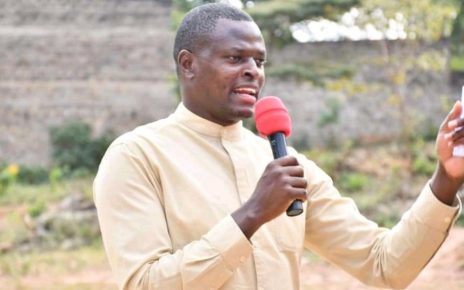The Kenyan government, led by President William Ruto, is set to allocate over Sh1 billion for the maintenance of his advisory units, as outlined in budget documents presented to Parliament. This allocation represents an increase from the previous fiscal year’s expenditure of Sh977 million.
These advisory units, consisting of six distinct entities, will primarily utilize these funds for salaries, travel expenses, and entertainment, with a total allocation of Sh759 million. This significant financial commitment to presidential advisors comes at a time when the government is actively seeking to reduce unnecessary expenditures, such as overseas trips and hospitality, to address the fiscal deficit.
The substantial budgetary allocation for advisors under the Ruto presidency has raised concerns, particularly when compared to the expenditures during the tenures of his predecessors, Uhuru Kenyatta and Mwai Kibaki. Situated within State House, these advisors wield significant influence over policy formulation, reporting directly to President Ruto and playing a crucial role in shaping executive decisions that impact economic policies. Kenya’s governance model mirrors that of the United States, with the President directing policy while advisors hold executive roles.
However, this approach imposes a significant financial burden on taxpayers. The six advisory units are set to receive a budgetary allocation of Sh280.5 million for the upcoming fiscal year, marking a 35% increase from the current allocation of Sh207.8 million. This allocation falls under the policy analysis and research unit of the State House, which has seen a substantial increase from Sh87.2 million during the Kenyatta presidency to the current figure of Sh977 million. In contrast, Kenyatta’s advisory arrangements, such as with Prof Mutahi Ngunyi, were relatively ambiguous and not explicitly outlined in State financial statements.
More than half of the budget is allocated to managing the economy, including entities such as the Office of Economic Transformation, the Council of Economic Advisors, and fiscal affairs and budget policy. Dr. David Ndii holds a prominent position as the chair of the Presidential Council of Economic Advisors, alongside esteemed members such as Mohammed Hassan, an accomplished investment banker, and Dr. Nancy Laibuni, formerly associated with the Kenya Institute for Public Policy Research and Analysis (Kippra). Dr. Ndii’s team has been allocated Sh194.5 million, with funds earmarked for various expenses including travel, entertainment, and communication items, in addition to salaries.
Interestingly, Dr. Ndii has advocated for budget reductions, particularly for non-essential expenditures, as Kenya aims to achieve a balanced budget within the next three years. The country has faced significant fiscal deficits over the past decade, primarily due to supporting ambitious infrastructure projects, which almost led to a debt repayment crisis. In addition to curbing spending and reducing the budget deficit, Ruto’s administration, which took office in 2022, has implemented new tax measures, leading to legal challenges from some individuals and organizations.
Another notable figure within the advisory ranks is Henry Rotich, who previously served as Cabinet Secretary in the National Treasury for six years. Rotich now serves as senior adviser and head of the office of fiscal affairs and budget policy, alongside his role on the council. His office has been allocated a budget of Sh100 million, with a significant portion earmarked for travel expenses. Rotich’s economic advisers have played a key role in shaping controversial policy decisions, including various tax measures, under the Kenya Kwanza initiative.



